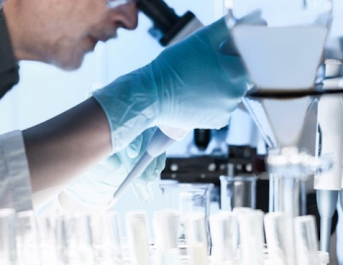Types of Laboratories Services
When choosing a laboratory, you should consider several factors. There are many options available for testing and diagnosis. Learn about Biochemical Genetics, Clinical Virology, and Hematology Services. Read about the benefits of each type of laboratories service to find one that best meets your needs. Here are some examples of the kinds of labs that are available. You can even find a service that will handle all your needs in-house. Then, you can decide whether it's worth paying extra to get it done at home.
Biochemical Genetics Laboratory
The Biochemical Genetics Laboratory is part of the Medical Center's Biochemical Genomics Program. The laboratory provides diagnostic results in a timely manner, comprehensive monitoring results, and guidance for follow-up care. Dedicated to providing high-quality results, the Biochemical Genetics Laboratory also participates in external proficiency testing programs. Here are some of the lab's highlights. Read on to learn more. The Biochemical Genetics Laboratory is the national center for Tay-Sachs disease carrier screening.
Clinical Virology Laboratory
To
properly exploit the Diagnostic Virology Laboratory, it is imperative to follow
certain principles, both for the treating clinician and for the laboratory
personnel. For the clinician, the results of diagnostic tests depend on three
major factors: the information provided by the physician, the type of assay
used, and the competence of laboratory staff. These three factors must be
coordinated well to produce accurate results. Here are some guidelines to help
you manage your clinical virology laboratory:
The
Virology Laboratory provides state-of-the-art diagnostic services to detect
viral infections of the respiratory, GI tract, CNS, and urogenital systems. For
pathology residents, the laboratory serves as a one-week core rotation where
they learn about major aspects of clinical virology. They also assist
physicians in making treatment decisions. They also answer questions related to
viral diagnostics, such as which test is more appropriate and which one is more
effective.
Hematology Laboratory
The
Hematology Laboratory Services provides specialty testing for hematologic
diseases and related conditions. The Hematology Laboratory works closely with
Flow Cytometry, Molecular Diagnostics, and Cytogenetic departments to provide
comprehensive clinical diagnostic services. The Hematology Laboratory has
become a leader in the development of auto verification of routine hematology
testing, as well as the rapid identification of sepsis and hypercoagulable
risk.
The Hematology Laboratory conducts routine and specialized tests to determine blood cell levels. These include CBC, blood cell count, reticulocyte count, erythrocyte sedimentation rate, eosinophil count, and body fluid cell count and differential. A range of tests is also performed in the Hematology Laboratory, including urinalysis, PT with INR, sensitive d-dimer, and guiac card for colorectal cancer.


Comments
Post a Comment